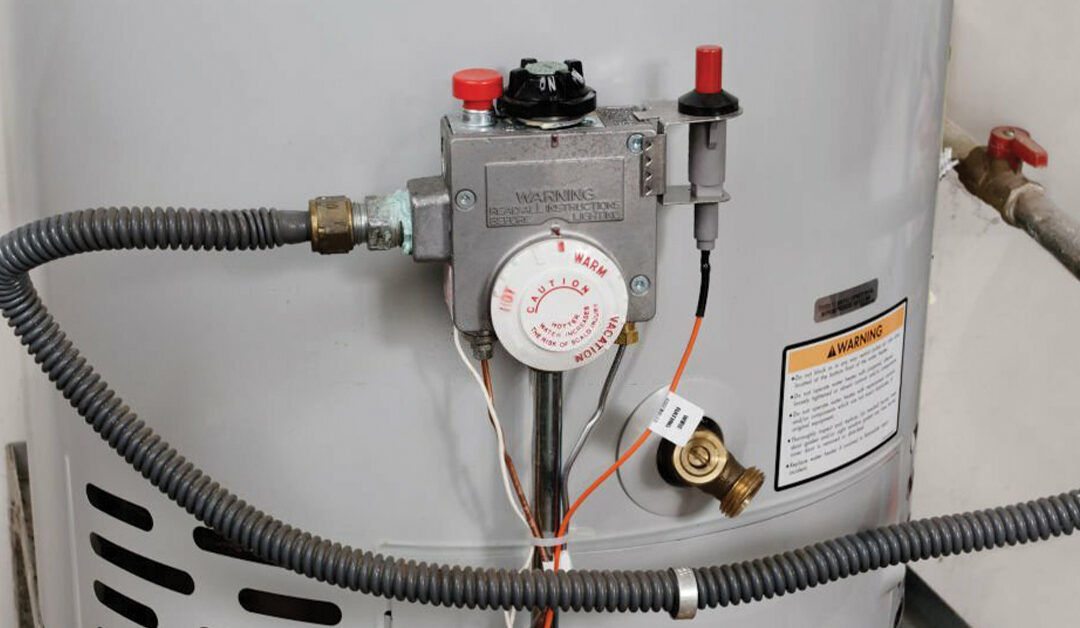Having hot water for showers, washing dishes, doing laundry, and other uses is a convenience that a properly operating water heater provides. This appliance is made up of many small but crucial parts, and the pilot light is one of them, even though it is frequently disregarded. This tiny flame warms the water by acting as an ignition source for the burner.
If you’ve ever had issues with your water heater’s pilot light, you are aware of how difficult it can be to carry out your daily tasks. In this comprehensive guide, we’ll delve into the subject of water heater pilot lights, going over their significance, common problems, and solutions to keep your water heater operating at peak efficiency.
Understanding the Role of the Pilot Light
Before we dive into troubleshooting and solutions, it’s essential to understand the fundamental role of the pilot light in your gas water heater. The pilot light is a small, continuous flame that burns steadily at all times. Its primary purpose is to ignite the main burner when hot water is needed. When you turn on a hot water tap, the pilot light provides the initial spark, allowing the burner to kick in and heat the water in your tank.
Now that we know the pilot light’s significance, let’s explore some of the common problems you might encounter and the steps you can take to address them.
Common Problems and Solutions
1. Pilot Light Keeps Going Out
Possible Causes:
- Drafts: Airflow around the water heater can disrupt the pilot light, causing it to go out repeatedly.
- Dirty Components: Over time, dust and debris can accumulate around the pilot light and other critical components.
- Faulty Thermocouple: The thermocouple is a safety device designed to shut off the gas supply if it senses a pilot light failure.
Troubleshooting Tips:
- Check for Drafts: Begin by inspecting the area around your water heater for drafts. Drafts can blow out the pilot light, causing it to go out. Seal any gaps or openings in the vicinity.
- Clean the Area: A clean environment is essential for the proper functioning of your water heater. Regularly clean the area around the pilot light and burner to prevent dust and debris from interfering with the flame.
- Inspect the Thermocouple: If the pilot light continues to go out, the thermocouple might be at fault. It’s a safety feature that can sometimes malfunction. Consult a professional technician to inspect and replace the thermocouple if necessary.
2. Pilot Light Won’t Stay Lit
Possible Causes:
- Dirty Pilot Tube: A clogged pilot tube can prevent the pilot light from staying lit.
- Gas Supply Issues: Insufficient gas pressure or a malfunctioning gas valve can lead to pilot light problems.
Troubleshooting Tips:
- Clean the Pilot Tube: If your pilot light won’t stay lit, the pilot tube may be clogged with debris. Carefully clean the pilot tube using a soft brush or compressed air to remove any obstructions.
- Gas Supply Check: Ensure that your water heater receives an adequate supply of gas. Low gas pressure or a faulty gas valve can be the culprits behind a pilot light that won’t stay lit. If you suspect a gas supply issue, contact a professional HVAC technician to assess and rectify the problem.
Preventive Measures
Prevention is often the best approach to avoiding water heater pilot light issues. Here are some preventive measures you can take:
- Regular Maintenance: Schedule annual maintenance checks for your water heater. Professional technicians can inspect and clean critical components, ensuring your water heater functions efficiently.
- Keep the Area Clean: Maintain a clean and dust-free environment around your water heater. Regularly dust and sweep the area to prevent debris from accumulating and affecting the pilot light’s performance.
- Check for Leaks: Periodically inspect your water heater for gas leaks. If you detect the smell of gas, turn off the gas supply immediately, open windows for ventilation, and leave the area. Do not use electrical switches or appliances. Contact your gas utility provider immediately for assistance.
Safety Precautions
Safety should always be a top priority when dealing with gas appliances like water heaters. Here are some essential safety precautions to follow:
- Gas Odor: If you ever smell gas around your water heater, do not ignore it. Gas leaks are a serious hazard. Immediately turn off the gas supply, open windows for ventilation, and leave the area. Do not use electrical switches or appliances, as they can create sparks. Contact your gas utility provider or emergency services immediately.
- Professional Help: While many pilot light issues can be addressed through troubleshooting, there are situations where professional help is necessary. If you’re uncertain about any repairs or if you encounter complex issues, always consult a qualified technician. Attempting to fix advanced problems without the necessary expertise can be dangerous.
Read More About: Best Water Heater Brands
Conclusion
In conclusion, the pilot light in your water heater may be small, but its role in providing hot water is undeniably significant. By understanding common pilot light problems and following the troubleshooting tips provided in this guide, you can ensure a steady supply of hot water in your home. Remember, safety should never be compromised when dealing with gas appliances.
If you ever encounter a situation that raises safety concerns or if you’re unsure about any repairs, don’t hesitate to seek professional assistance. With proper maintenance and vigilance, you can enjoy reliable hot water year-round and avoid the inconvenience of pilot light issues.





